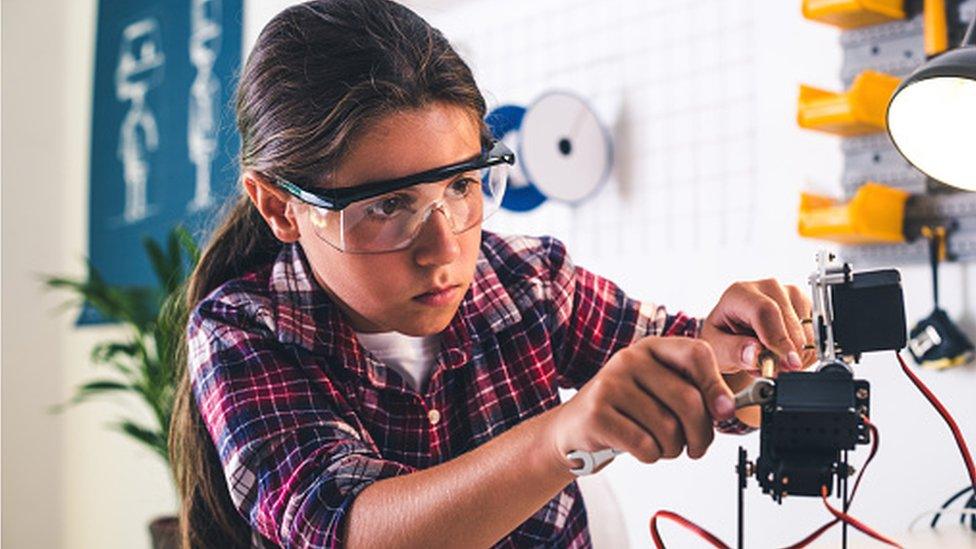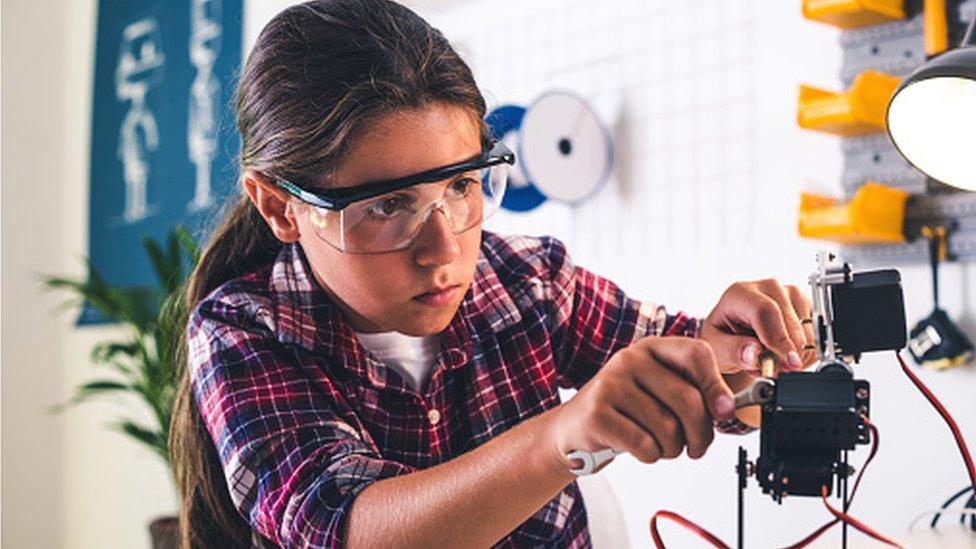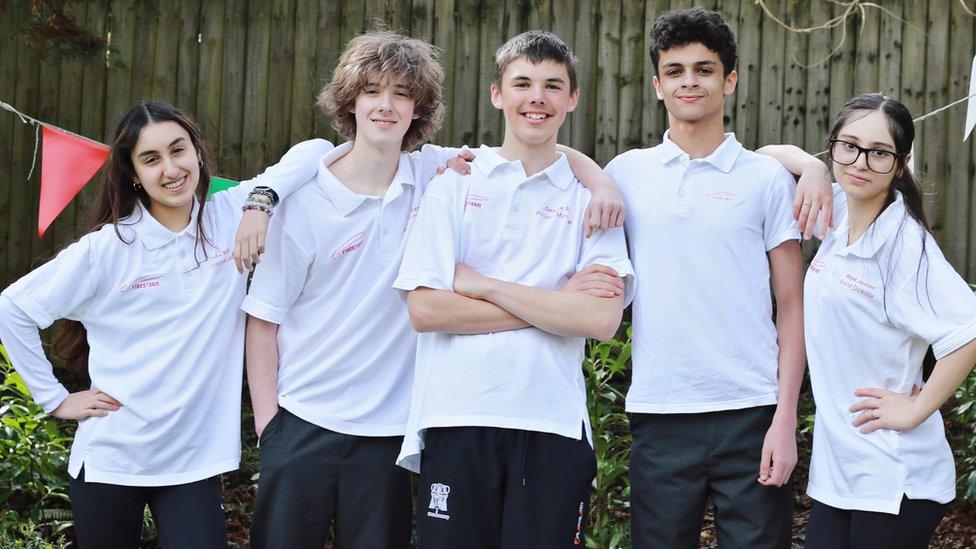Help young women to pursue STEM careers, MPs told
- Published

Studies show woman are less likely to pursue STEM careers than men, although some are bucking the trend
Young women must be given more help to follow careers in science, technology, engineering and maths (STEM), MPs have heard.
Emma Morgan, 18, and Victoria Searle, 24, shared experiences of work and study in fields supporting the defence sector.
MPs are examining the skills pipeline and the industry's future job growth.
Women should be encouraged to get jobs that are not "traditionally for women," said Ms Morgan.
Ms Morgan, who is studying a BTEC level 3 computing and cyber security course at Cardiff and Vale college, gave evidence to members of the Welsh Affairs Committee, external in Westminster last week.
"Any industry can be suited to a woman just as well as a man," she said.
"It is just about finding your feet, digging your way in, not stopping for anyone."
She was responding to a question from Newport West Labour MP Ruth Jones, who wanted to know about her experiences as a young woman in an industry "renowned" for being "male dominated", and what could be done to make change.
"Out of 18 of us, I am one of two girls in the class, so you are dealing with a lot of boys in this industry," she told the MPs.

Emma Morgan and Victoria Searle gave evidence to the Welsh Affairs Committee in Westminster
Studies show women are less likely to work in STEM than men, although some are starting to follow a new career path.
Office for National Statistics (ONS) figures showed in 2021 there were 15,000 more women working as programmers and software developers in the UK than in the previous year, while the number of female web designers rose by nearly 10,000.
But despite these gains, women made up only 25% of coding jobs, according to SheCodes, external, which teaches coding skills to women.
ONS data from June 2022 showed 512,900 men working as programmers, software development professionals, web design professionals and data analysts, but only 113,900 women - or 18% - doing these jobs.
Ms Searle, who recently completed an engineering degree apprenticeship at Airbus in Broughton, Flintshire, agreed her area of work was male-dominated.
"I cannot say that there are more females than males in my office. But in my personal experience, it has never impacted my decisions or stunted my development, and being a female has never been a consideration, so I have had a really positive experience," she told MPs.
She suggested more information sharing on opportunities available in the sector as a way to help improve the gender balance.

Data from 2022 showed 512,900 men working as programmers, software development professionals, web design professionals and data analysts, but just 113,900 women
"It is about constantly making sure that we push the information out there and that they have everything they need to make a fully informed decision," she added.
Both also said more could be done in schools to ensure young people knew about the full range of options available after the ages of 16 and 18.
"I was only told about the A-levels route. I wasn't told anything about BTECs. I stumbled upon that myself, really," said Ms Morgan.
Ms Searle described careers advice at her school as quite "heavily university-focused" .
"While we had apprentices coming in, the rest of the discussions were very much 'if you can go to university, go'," she added.
Afterwards the pair reflected on their experience of giving evidence to MPs.
"It's really nice to know that they're looking for opinions from the young people in the industry and that we can make an impact and influence the decisions they make," said Ms Searle.

JUNE: VOICE OF A SILENT TWIN: The tragic story of June, her sister and their life in Broadmoor
THE LEARNERS IS BACK: It's a new term for Jonesy's merry band of students

- Attribution
- Published8 September 2023

- Published27 August 2017

- Published7 September 2023

- Published27 October 2022

- Published27 September 2022
